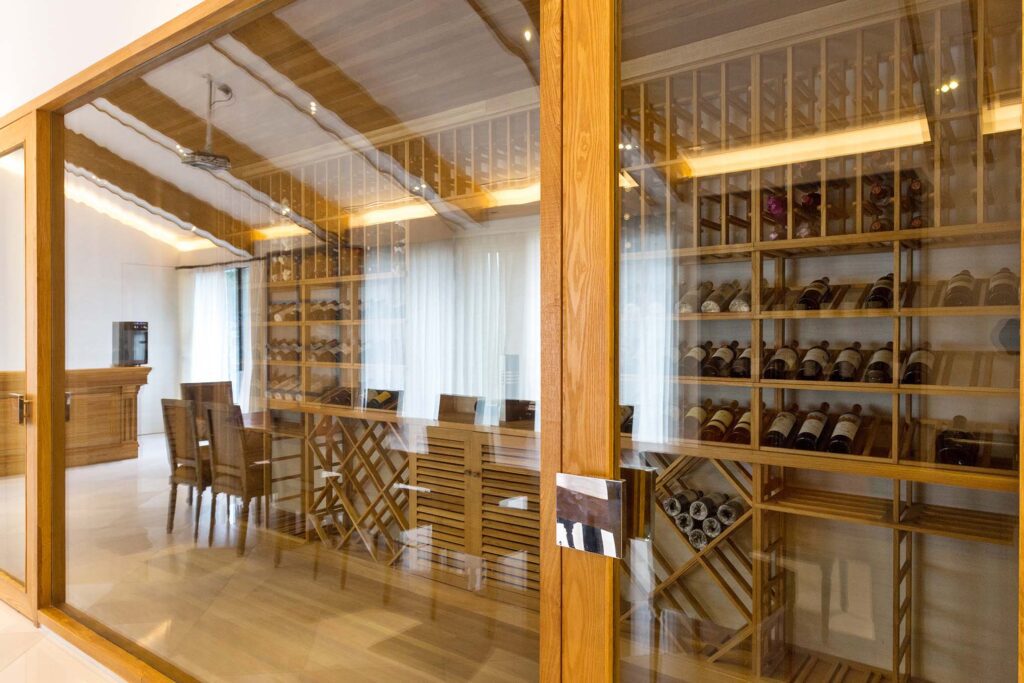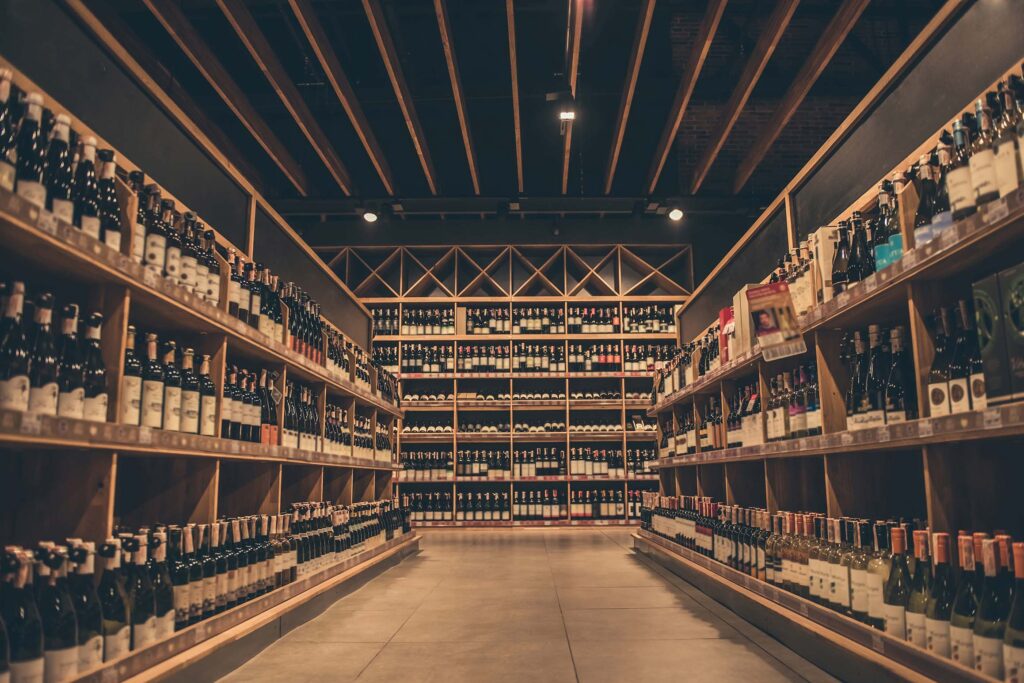Residential and Commercial wine cellars
Wine enthusiasts know the importance of storing their bottles in the right conditions to ensure the best taste and longevity. This is where wine cellars, both residential and commercial, come into play. These specialized rooms or spaces are designed to provide the ideal environment for storing wine, preserving its flavor and quality for years to come.


When it comes to residential wine cellars, homeowners can create a custom space to suit their personal preferences and collections. Not to mention that it’s a way of managing your wine collection in an organized manner. Also, these wine cellars can be built in basements, closets, or even converted spaces, such as garages, or in unused areas such as under stairwells.
A residential wine cellar can be as small as a few bottles or as large as a room holding thousands of bottles. The key is to create a temperature-and humidity-controlled space with adequate ventilation to keep air circulating and prevent mold and mildew.

On the other hand, commercial wine cellars are designed for businesses such as restaurants, bars, and wineries. It should be taken into account that as it is a restaurant with several guests a day, the wine cellars are larger…
That’s why these cellars are much larger and must meet strict standards for temperature, humidity, and air quality.
They are often used for both storage and display, allowing customers to view the extensive wine collection available.
If you want to learn about the basic rules for a wine cellar… Here are some of the very important ones:
It is important that the place where wines are stored should maintain a constant temperature (not less than 5ºC and not more than 18ºC). Extreme temperature fluctuations should always be avoided.
Naturally, during the year the average temperature varies according to the season, but sudden changes during a couple of days cannot be allowed.
Lighting also has an important role in wine cellars because intense light, whether natural or artificial, can cause defects in the wine, such as excessive oxygenation.
They should not be stored near artificial light or directly exposed to the sun.
The space where you store your wines needs good air circulation. This is essential to protect the bottles from bad odors and mold. Remember also that, even with a good ventilation system, wine sucks in and absorbs aromas, so it should not be stored near chemicals, deodorants, or foods with strong aromas.
For these reasons, a place like a wine cellar should be suitable for them.
After we explain some basic rules of wine cellars, now we are going to give you 3 reasons for having cellars in residential and commercial places:
Proper storage of wine can help preserve its flavor and quality for longer periods of time and allows the wine to develop and improve over time.
Wine cellars are also a great space for entertaining and hosting wine tastings.
Having a wine cellar in your home or business can add aesthetic appeal and value to your property. It’s a great way to showcase your wine collection and demonstrate your love of wine.
Overall, investing in a wine cellar, whether for your home or business, is a smart decision for any wine lover. It ensures that your wine collection is stored in the best possible condition, allowing you to enjoy your wines at their best for years to come.
So now you have all that you should know to account for a wine cellar and remember that in The Gate Lab Creations, we can design a wine cellar to match your need as well as aesthetics.
From traditional, contemporary, and modern, or we can customize any other idea you want because we have the expertise to design you the custom wine cellar that you’ve been looking for!
